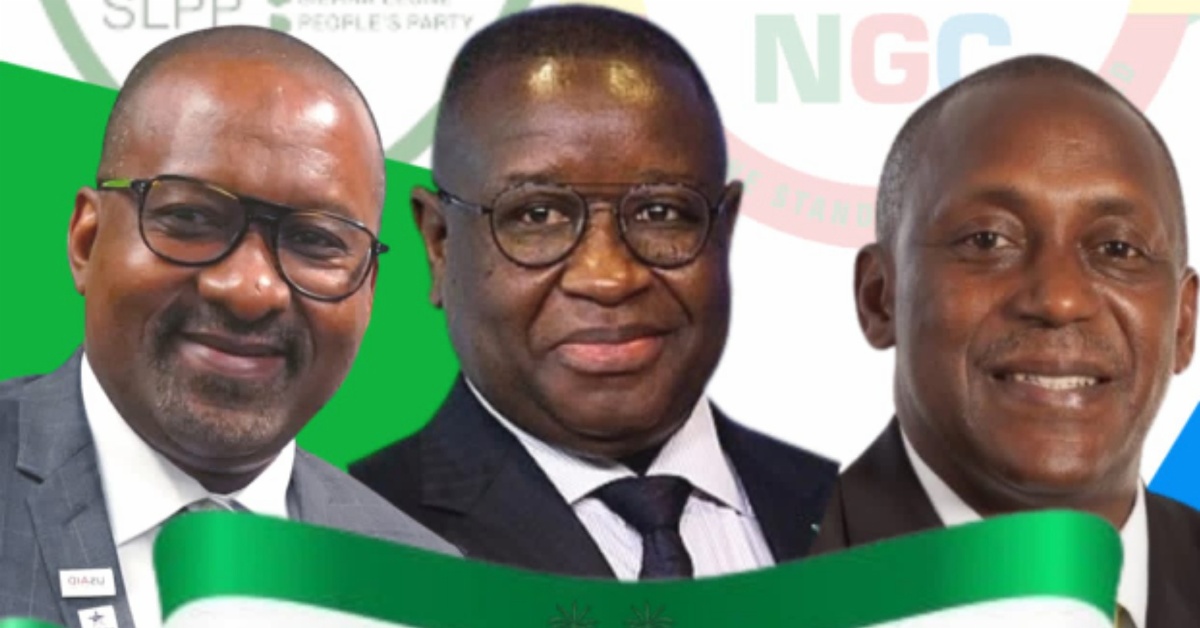Did you know that more than 51% of African countries formed pre-election political party alliances for their legislative elections and almost 60% agreed to form some type of coalition government (EISA)? The formation of political alliances is not new to politics.
In fact, more African states and countries with similar social challenges are embracing party alliances as the best socio-political strategy for addressing inherited ethno-regional tensions.
That is because African political parties, as in Sierra Leone, are captured and influenced by ethno-regional factors.
We know what SLPP is to the Southeast regions and APC to the Northwest regions. And even for the third alternatives, we understand what C4C is to Kono, PMDC to Bonthe, and NGC to Kambia.
Although some of us understand the reason for and appreciate the formation of the just announced SLPP-NGC alliance, we should create the space to discuss with and provide answers to those who want to understand the benefits of party alliances in Sierra Leone.
This article seeks to answer the following questions and more. What values do NGC and Dr. Yumkella add to SLPP and President Bio? Does SLPP need NGC or KKY to win an election? Why would NGC and KKY join SLPP at this time? Aren’t such alliances formed between opposition parties? What is a political alliance?
Political alliances are derived from the understanding that no one party or group has monopoly on wisdom and, thus, it is better to join forces for the country to benefit from the different views and expertise of different parties.
They seek to address systemic challenges that either have divided or threatening to divide their countries on the basis of socio-political characteristics, as the case has been in Sierra Leone since 1963—ethno-regionalism.
That agreement to work together allows the parties involved to collaborate on a common national agenda. The initiator for establishing an alliance is usually the leading political parties. That is why the SLPP-NGC alliance was initiated by the leadership of SLPP, particularly President Julius Maada Bio.
Such alliances can be formed at pre-election, during elections, and after elections. When established in opposition, an alliance strives to position itself as a more reliable alternative to government.
An alliance during elections focuses mainly on rallying support to secure votes. When in government, its main objective is to secure a governing majority in the legislative and occupy the executive office to wield the powers needed to influence change for its socio-political agenda.
That means political alliances do not solely focus on winning elections, though that is important, their most essential goal is forming a government that represents the largest possible majority of their citizens and addressing shared political and socioeconomic interests.
Another way to appreciate the benefit of a political alliance is to examine it with the lens of Sierra Leone’s winner-takes-all electoral system that gives overwhelming power to one ruling party, which has dreadfully deepened our political divide.
An alliance like that of the SLPP and NGC will address the state’s balance of power with a united government of political parties from the Southeast and Northwest.
That alliance, like others, will be executed and managed on the principles of transparency, respect, compromise, and country first. Such promising socio-political strategy should be welcomed by all peace loving, progressive Sierra Leoneans.
Such alliances are attractive and valuable, because “that is the way we will make better decisions and take more of the country with us” (Clive Lewis, MP, British Labour).
According to global election trends, political alliances are increasingly common in modern democracies, primarily because they are the best form of inclusive governance and necessary for the advancement of democracy.
So, to say that NGC has no value to the proposed SLPP-NGC alliance is failing to recognize that SLPP is a well-managed party with very intelligent politicians who understand the dynamics that influence Sierra Leone politics, including President Bio, members of his cabinet, and SLPP NEC. That is to say that the ruling party did its home work very well and found value in partnering with NGC.
The alliance offers incredible benefits to SLPP and NGC. So, we should not only ask questions about what is in it for SLPP, but also consider asking what is in it for NGC. Either way we spin the motive of the alliance, we must recognize that it is a great accomplishment for the youngest political party in the country to form an alliance with the oldest and largest political party that is also the incumbent government.
Think about how much of an achievement and smart positioning that is for NGC and progressive Sierra Leoneans.
If Sierra Leone is to break free from the strong grasp of the unprogressive, inherited ethno-regional politics, then its political parties and citizens should consider and support political alliances that seek to unite all Sierra Leoneans across regional lines. That is the objective of the SLPP-NGC political alliance.











